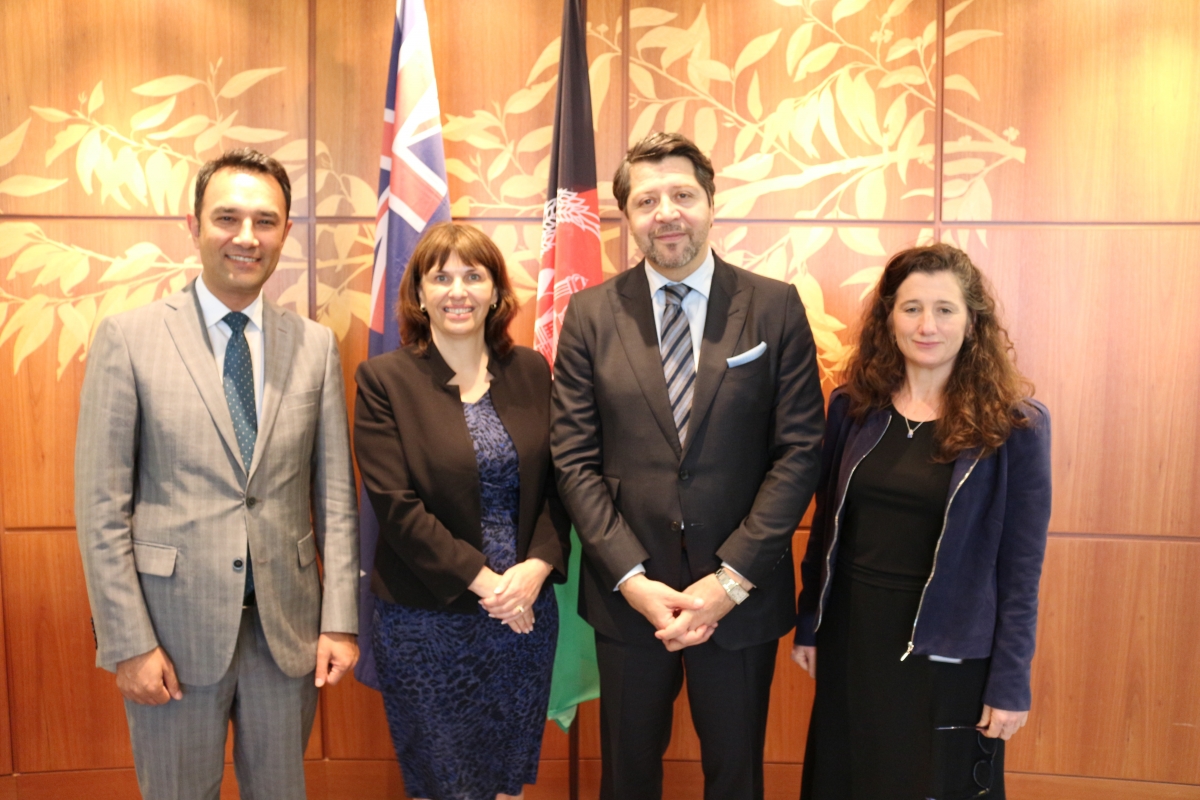Canberra – The first political consultation meeting between Afghanistan and Australia was held by the senior officials of the two countries on December 7, 2017. Deputy Foreign Minister Mr. Hekmat Khalil Karzai was leading the Afghan delegation in this meeting.
The first joint meeting of senior officials of both countries was held after establishing their political relationship (non-resident) in 1969. Afghanistan and Australia inaugurated their embassies in Canberra and Kabul in 2005 and 2006 respectively and signed the development framework agreement in 2012.
Political, people to people, and economic relations of the two countries were discussed in this meeting. In addition, more international cooperation in terms of fighting terrorism, bringing peace and stability to Afghanistan, and the two countries’ cooperation in the international arena were emphasized.
Mr. Hekmat Khalil Karzai said, “After the trip of the Afghan President in the beginning of 2017, a new chapter of cooperation between Afghanistan and Australia started, which is a turning point in deepening relations between the two countries. This meeting reviews and follows all recommendations and decisions of that trip and all other initiatives in creating an effective relation between the two countries.”
Australian Deputy Foreign Secretary and the Co chair of the Meeting Ms. Penny Williams called today’s meeting a proper and timely action and emphasized Australia’s role in fighting the international terrorism. Ms. Williams also explained Afghanistan’s position in Australia’s politics, which was published in Australia’s last collection of foreign policy. She also mentioned her country’s support for long term cooperation.
It was decided to annually and periodically hold political consultations in one of the capitals of the two countries in order to discuss important issues like security, economy, culture, and the region.
